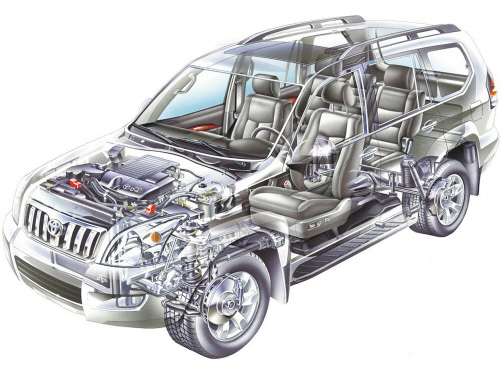
“Accidental parts from China†had a large recall of Aston Martin shortly before. According to the survey results published by Aston Martin, the main reason for the quality defects of these vehicles was the use of Chinese parts and components. Counterfeit plastic material provided by the supplier. This news has attracted widespread attention due to its bizarre nature.
If this is not the case, the problems of many parts and components are hidden behind the vehicle. As a product consisting of tens of thousands of parts, the problem of the quality of automobiles is actually a matter of parts. There is a phenomenon in the automotive aftermarket in China: Similarly, replacing a part, a 4S shop is more expensive than an auto city or a maintenance point, and some are even several times larger.
One of the reasons for the “expensive†4S store is because it provides original parts, which also gave birth to a corresponding term “deputy factory partsâ€. There are two risks behind this.
First of all, choosing the original part means paying a higher price. In a sense, the agreements reached by auto manufacturers and parts suppliers constitute a certain degree of monopoly: After the majority of small and medium-sized component companies sign supply agreements with auto manufacturers, they basically can no longer resell corresponding parts. . If car manufacturers find that suppliers of parts and components supply external equipment, they will not only punish but also disqualify them at any time. Suppliers are afraid to take risks.
An auto parts industry executive revealed: “The current interest chain is that imported vehicle companies purchase parts from parts and components companies, then increase prices by 50%-100% for 4S stores, and 4S stores for 50%-100% for sales. However, domestic models may be lower, but the increase is also about 25%. If a domestic new car is opened and each component is sold separately, the overall price will reach 3 times the price, and imported luxury cars can even achieve 5 Times."
Secondly, the selection of deputy plant parts may lead to quality risks. The so-called deputy plant parts, in some cases counterfeit parts, cannot be guaranteed, and it is likely to bring risks to the entire automobile. Previously in China, there have been several incidents involving the death of passengers from truck brake hubs. A veteran of a commercial vehicle company once told reporters: “This kind of deputy plant has great safety risks, and it is often followed by accidents. It is difficult to determine where this responsibility and problem lie.â€
Our long-term neglect in this area has caused consumers to face double dilemmas in the subsequent maintenance and other aspects. The United States began a large-scale anti-monopoly investigation against parts and components companies from last year. It shakes auto parts companies. Most of the surveyed car companies admit that there are problems and punish the penalty. The most recent one is Bridgestone, a Japanese tire company.
The Japanese Bridgestone Group released information last month that it has reached an agreement with the U.S. Department of Justice to recognize the manipulation of auto parts sales prices, violate the U.S. Anti-Monopoly Law, and agree to pay a fine of 425 million U.S. dollars. In order to bear the corresponding responsibilities, all directors and relevant executive directors of the company will return the full amount of bonuses for the three months. In addition, the representative director will also return 50% of the monthly salary for a period of 6 months.
The U.S. approach has some implications for the Chinese government. However, compared to the U.S. practice, in fact, China’s reality is that vehicle companies have more control over the right to speak. This is true both in the component system and in the after-sales service system. The problem is that despite the weak position of parts and components companies, they are also able to benefit from cooperation with companies, and ultimately sacrifice the interests of consumers.
As a complex industry, it is more difficult for consumers in the automobile industry to safeguard their rights. This is the reason for the nature of the industry. At the same time, related laws and regulations need to be further matured. Now, compared with vehicle companies, it is time to shift their focus to parts and components companies.
Snap-in tubeless valves are used in passenger car tires. It`s made of rubber with copper stem and valve core inside. We supply a full range of good quality Tire Valves including TR412, TR413, TR414, TR415 and rubber tire valves with chromed sleeves or colored sleeve and valve caps.
Snap-in Tubeless Valve
Snap-in Tubeless Valve,Rubber Snap-in Tubeless Valve,Tubeless Snap-in Tire Valve
Ningbo Heyu Tire Repairs Co., Ltd. , http://www.wheel-weight.com
![<?echo $_SERVER['SERVER_NAME'];?>](/template/twentyseventeen/skin/images/header.jpg)